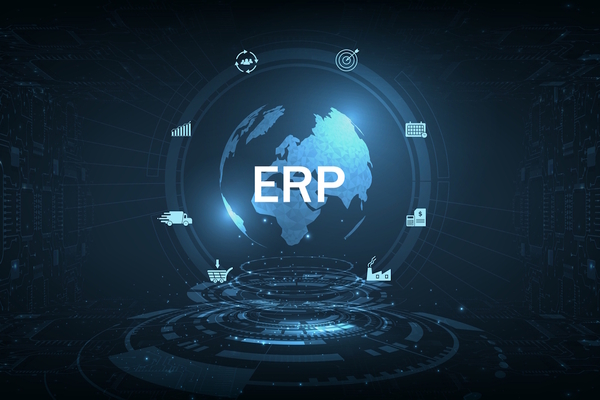Getting ready for Extended Producer Responsibility

Stephen Jamieson at SAP describes how can technology assist organisations in preparation for the Extended Producer Responsibility scheme
We rely on plastic in almost all aspects of life. Plastic is in the packaging that keeps our food fresh, it’s in the keyboards we use every day at work, and hospitals use it to store life-saving medicines for the treatment of critically-ill patients. It’s practical, indestructible and necessary. Plastic is so deeply embedded in our daily lives that we are at a point where its use is unavoidable.
In the UK, it is estimated that almost 2.5 million tonnes of plastic packaging is used every year, with less than half (44.2%) being recycled. Without any intervention, that is leaving a lot of packaging to breakdown in landfill over the course of centuries. The impact on the environment is disastrous – in the words of the UN: “Plastic pollution can alter habitats and natural processes, reducing ecosystems’ ability to adapt to climate change, directly affecting millions of people’s livelihoods, food production capabilities and social well-being.”
The good news is that governments around Europe are beginning to roll out legislation designed to help organisations regulate their plastic waste, and the UK is no exception having introduced its Extended Producer Responsibility (EPR) scheme.
This is an important step to embed circular processes into the lifecycle of plastics. But understandably lots of British businesses – like retailers, manufacturers and food producers – are now wondering what this means for them, what they will have to report on and the repercussions for not doing so.
What is the EPR scheme?
Those organisations impacted by the EPR scheme for packaging will, simply put, need to report on this data. This new set of regulations will apply to all UK organisations that import or supply packaging.
There are some qualifiers here though. If all of the following apply, then companies need to collect and report their data:
- You’re an individual business, subsidiary or group (but not a charity)
- You have an annual turnover of £1 million or more (based on your most recent annual accounts)
- You were responsible for more than 25 tonnes of packaging in 2022
- You carry out any of the packaging activities
The breadth of those impacted here is broad. From supermarket chains to car manufacturers, there are a lot of organisations that will need to provide insights into this data.
When will the EPR scheme come into affect?
While the government originally targeted 2024 as the date for the scheme to take effect, it’s been deferred to October 2025. This has faced a mixed reaction from UK industry bodies, thinktanks and companies – with some criticising the government for dragging their feet on environmental regulation, and others saying they appreciate having more time to implement the required changes.
There’s still an impetus for organisations to get their houses in order sooner rather than later though. As the government’s website says: “EPR for packaging fees have been deferred for a year. You will not have to pay any EPR for packaging fees in 2024. However, you must still follow this guidance and report your packaging data for 2023.”
Not the first attempt at plastic regulation
The UK has introduced legislation to enforce best practice around the management of plastics before.
Last April, the government brought in the first plastic packaging tax (UK PPT) to be implemented globally. This legislation is designed to tax £200 per metric ton of plastic packaging either produced in or imported into the UK that does not contain at least 30% recycled plastic.
Just like their counterparts in mainland Europe, UK companies face two key challenges: getting the data to prepare their tax return and processing it to make tax decisions. With the EPR implementation just around the corner, this lack of visibility of company’s plastic commitments could result in serious fines for impacted organisations.
Technology will help businesses prepare for the EPR
Technology is a crucial weapon in the arsenal for helping companies mitigate their concerns around new environmental legislation.
It can assist companies struggling to comply with these new regulations in several ways – from giving them the ability to embed circularity principles into the design of products from the outset. Or even gaining greater visibility over where data on logistics and materials resides, including information on the composition of packaging – which need to be reported under the EPR scheme.
The ultimate goal of this technology is to help organisations by improving how they track increasingly essential environmental data and gain better oversight of material flows across all business processes. Improved ‘traceability’ helps increase the accuracy of plastic tax payments, mitigates compliance risks and boosts circularity.
While the immediate repercussions of the EPR and the responsibilities that the legislation will put on organisations has been delayed until October 2025, the establishment of the scheme should act as a prompt for businesses to improve how they tackle plastic pollution.
The importance of regulation like this can’t be overstated and companies are understandably worried about what this means for them. But, with the help of the right technologies, organisations can remain profitable while complying with the legislation, improving efficiencies and boosting circular processes, which ultimately benefit the planet.
Stephen Jamieson is Global Head of Circular Economy at SAP
Main image courtesy of iStockPhoto.com

Business Reporter Team
Most Viewed
Winston House, 3rd Floor, Units 306-309, 2-4 Dollis Park, London, N3 1HF
23-29 Hendon Lane, London, N3 1RT
020 8349 4363
© 2025, Lyonsdown Limited. Business Reporter® is a registered trademark of Lyonsdown Ltd. VAT registration number: 830519543





